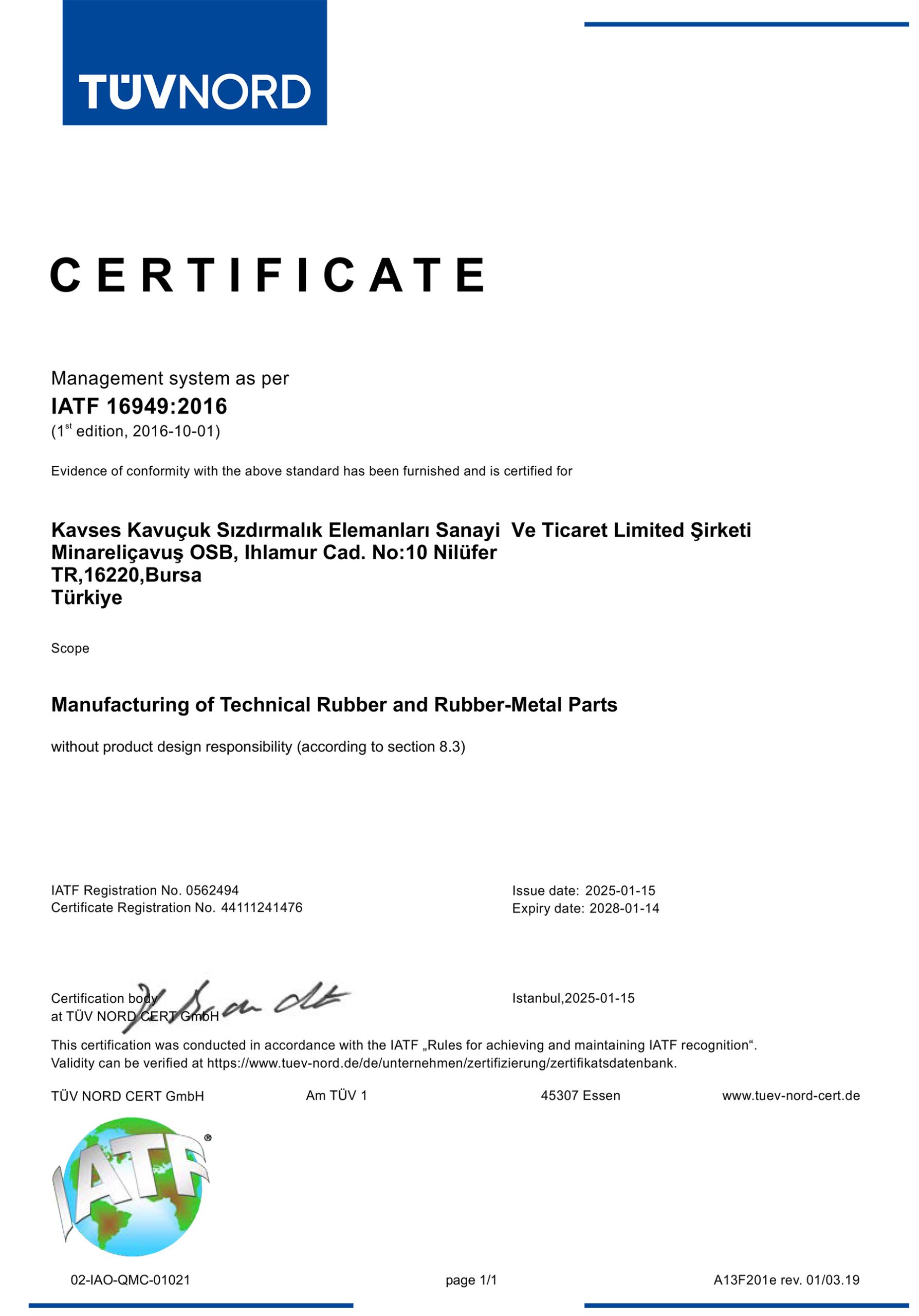As the top management and all employees of KAVSES Company, we commit to the following principles:
-
It is our constant principle to implement the KAVSES Quality Management System, comply with IATF 16949:2016, ISO 9001:2015, customer-specific requirements, legal and all applicable requirements, and ensure the continuity of the system.
-
Our priority is to increase customer satisfaction and trust by providing high-quality products and services with the “ZERO DEFECT” principle, continuously improving delivery accuracy, and minimizing customer complaints.
-
We expect our suppliers to adopt similar quality, ethical, and environmental standards, and we strengthen cooperation throughout the supply chain.
-
We work meticulously to protect the health, safety, and ethical values of our employees. The Kavses Code of Business Ethics is the most effective reflection of this.
-
With the “ZERO WASTE” approach, we support the conservation of natural resources, reduction of environmental impacts, the use of renewable energy, and sustainable production.
-
As the KAVSES family, we act as a team with all parties. By encouraging leadership and a participatory management approach, we make continuous improvement inevitable in our processes through a risk- and opportunity-based approach.
-
Reviewing the system through audits and carrying out necessary improvement activities are an important part of this development.
-
Planning trainings and other activities for continuous development, raising awareness at all levels about the benefits it provides, and thus ensuring the formation and establishment of a corporate culture also give strength to our work.
-
By following technological developments, we support innovative investments in the fields of economic, environmental, and social sustainability. In this way, we can produce quality products at optimum cost and support our aim to always advance our competitive position in automotive, which is our priority field, at the highest level.
Our quality objectives are determined in relation to performance indicators, based on measurable criteria, and reviewed at defined intervals.


